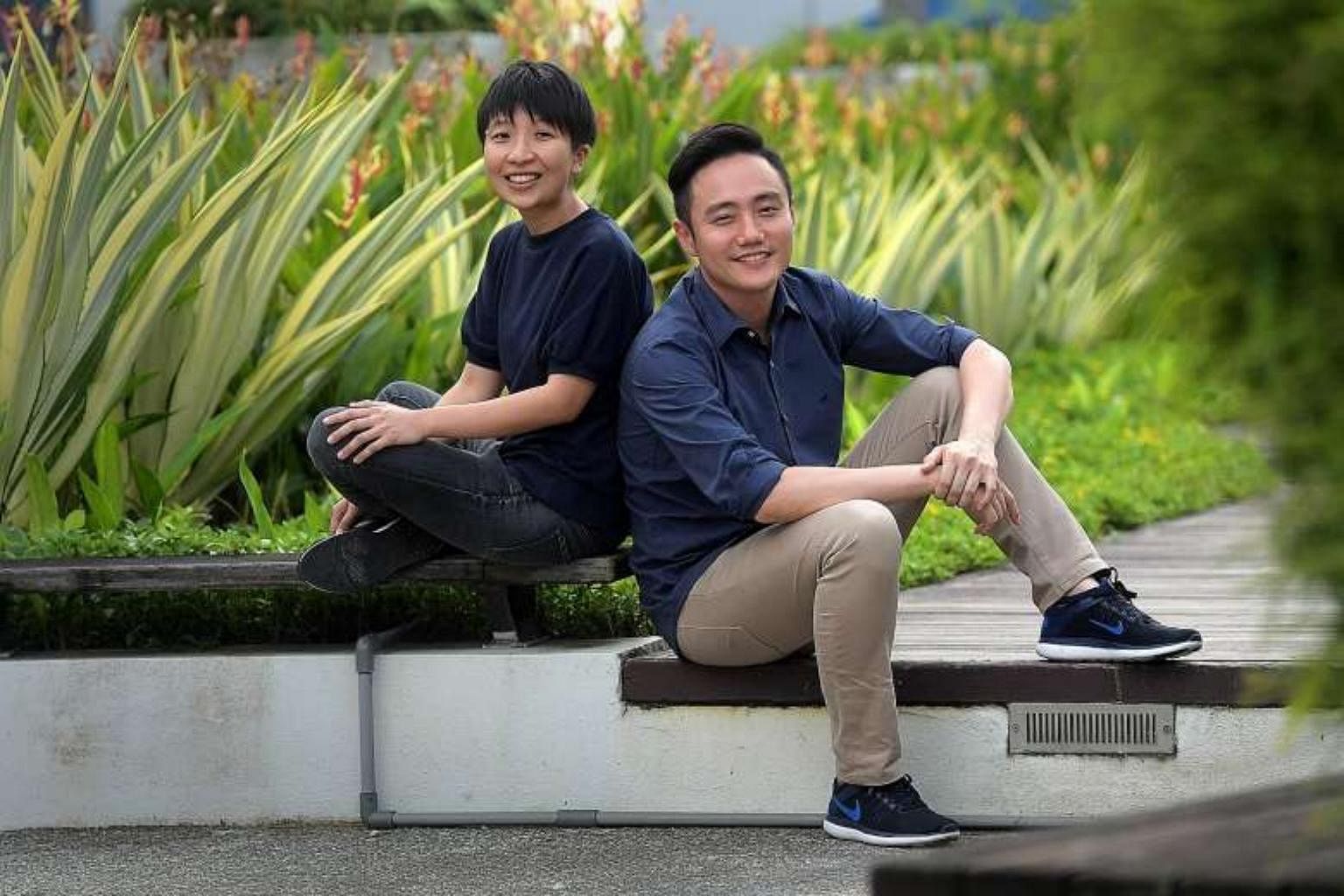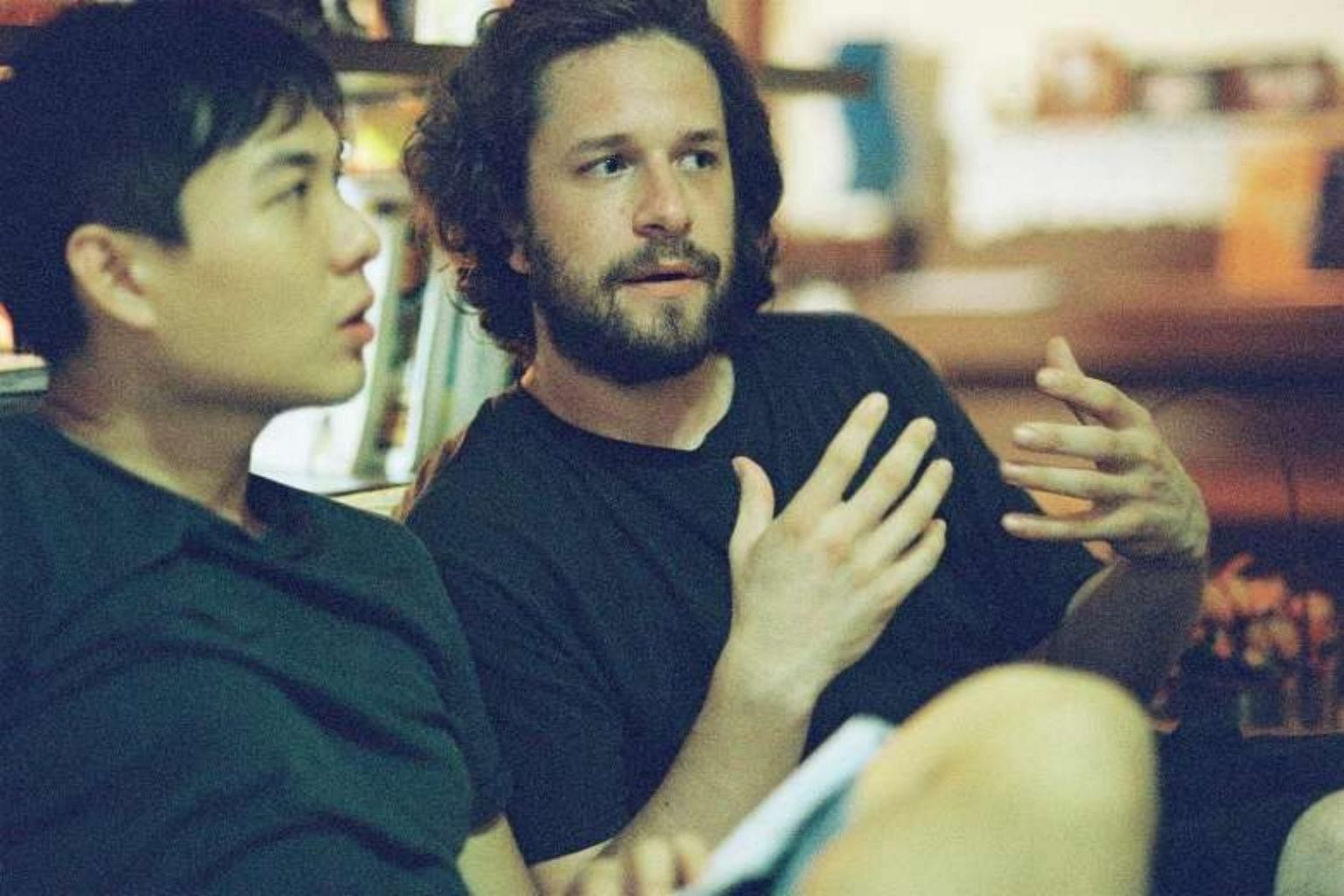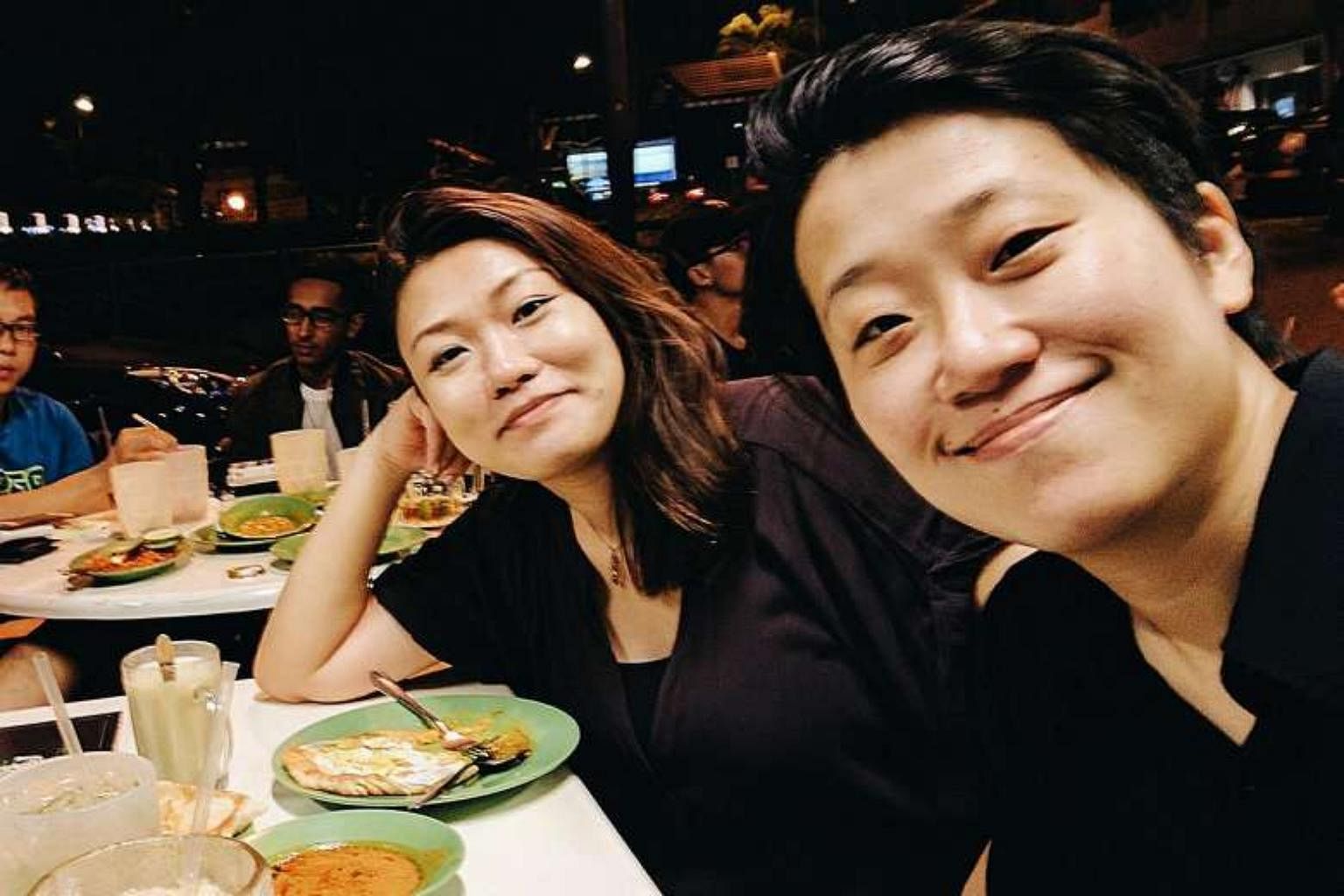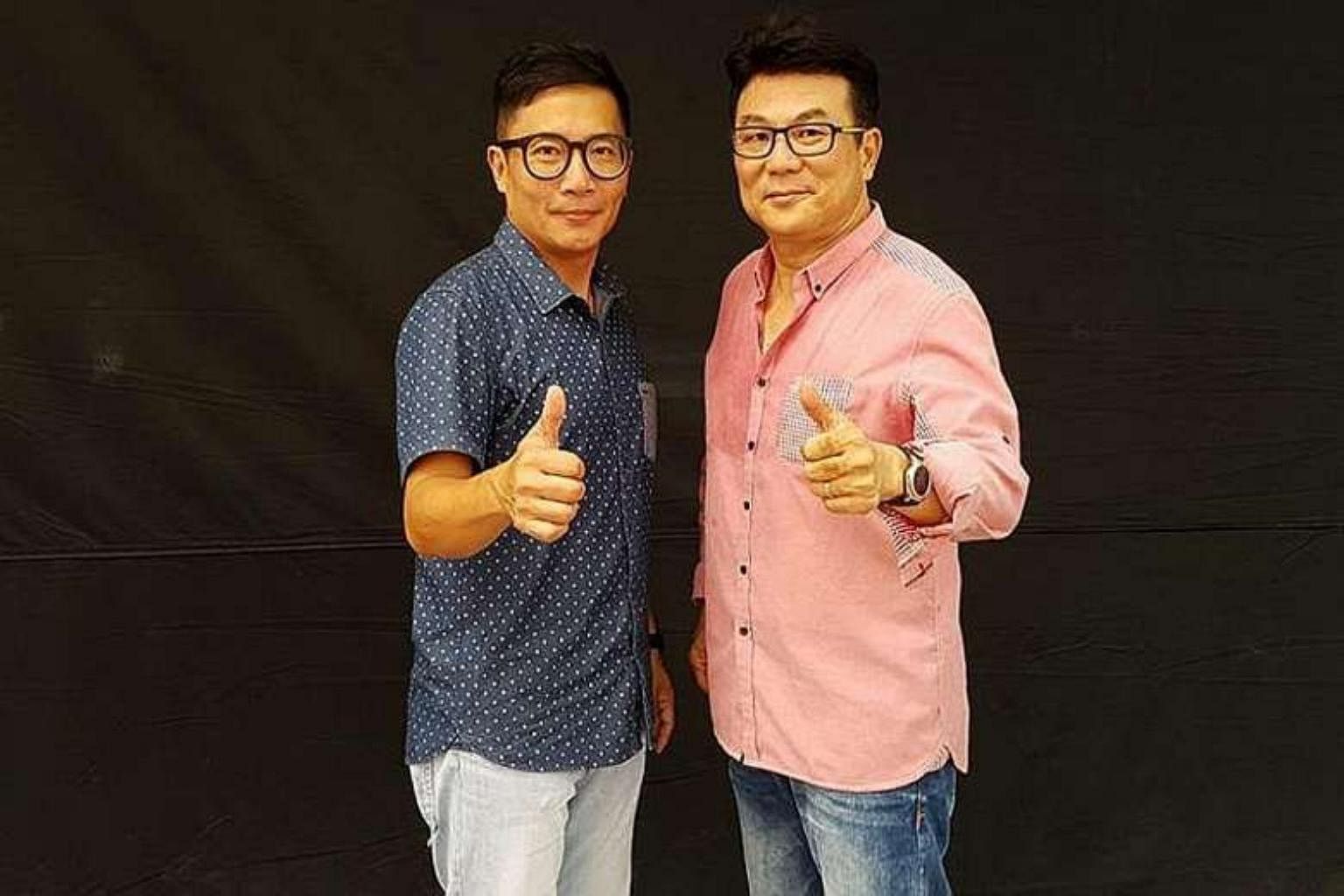Well-known Singaporean film-makers and their key collaborators
Behind-the-scenes collaborators of local film-makers are coming to the fore, with projects that will make their names recognisable. John Lui and Boon Chan report
You might have no idea who Natalie Soh, Ivan Ho, Lim Ting Li or Benoit Soler are, but if you enjoy films by well-known film-makers such as Boo Junfeng, Jack Neo, Kirsten Tan and Anthony Chen, you will know their work.
All of them have toiled behind the scenes - as editor, screenwriter, sound designer and cinematographer respectively - for the directors, whose names are pushed to the fore while theirs languish in obscurity.
But they might not remain obscure for long.
Ho stepped into directing this year with comedy Take 2 (2017), while Soh, Lim and Soler are finding themselves increasingly in demand, with reputations built on works that win awards.
If there is a common thread to their work philosophies, it is that they want their voices to be heard in the creative process and they want to be accorded respect as artists - regardless of salary or whether the director is a fresh film-school graduate or a local big shot.
'MindFi' chemistry between them elevates their work
Writer-director Boo Junfeng and editor Natalie Soh

Writer-director Boo Junfeng and editor Natalie Soh: 'MindFi' chemistry between them elevates their work
Since working on writer-director Boo Junfeng's debut feature Sandcastle (2010), Natalie Soh has become his go-to editor.
The two collaborated on his second film, the psychological drama Apprentice (2016), and also teamed up on a telco television advertisement and Home, the campaign music video for annual lesbian, gay, bisexual and transgender rally Pink Dot in 2013.
They have Mr Freddie Yeo to thank for playing match-maker. He is the chief operating officer of media company Infinite Studios, where Sandcastle was edited.
He says: "I felt that Junfeng and Nat would work very well together due to their personalities. Both are deep critical thinkers and love film-making and storytelling.
"The creative business is also very much a people business. People forget that."
But things did not exactly get off to a flying start.
Soh, 31, recalls: "It was my first feature and crafting a feature-length narrative is a completely different challenge from other short-form works. My first few edits were flat and confusing, but Junfeng was really patient and kind."
Perhaps it helped that it was Boo's first feature as well and they were facing a steep learning curve together.
At one point, they were stuck and could not figure out how to make the story work.
Boo, 33, says: "Then I had a sudden inspiration at 2am while we were having supper. I told her about it and she got it immediately. The people sitting at the next table must have thought we were crazy, the way we were talking about the characters.
"It was the cut of the film that made it to Cannes."
The coming-of-age drama screened at the prestigious Cannes Film Festival's International Critics' Week in 2010 and won Best Feature Film and Best Director at the Vietnam International Film Festival later that year.
Boo's works are very much character-driven, from teenager En searching for answers about his family in Sandcastle to prison officer Aiman's conflicted feelings about learning the hangman's ropes in Apprentice.
And that is something that Soh is sensitive to.
He says: "She is very perceptive and she has a great sense of dramatic rhythm. She also really cares about the characters in the films that she works on, which is important. She has definitely grown a lot over the years."
Soh studied electronic and broadcast media at Nanyang Technological University, but was drawn to editing. "It's like piecing together a giant jigsaw puzzle with endless possibilities."
She loves the collaborative nature of film and working with different directors. At the same time, she treasures the relationship that she and Boo have built up.
"By now we've got some form of 'MindFi' going, a lovely chemistry that allows us to collaborate without enabling each other's predilections. There's a wonderful kind of alchemy in collaborations like this, because the understanding and secret language help to elevate the work."
She adds sweetly: "Plus I care about him, so it makes working with him more fun."
Filming through a character's eyes
Film-maker Anthony Chen and cinematographer Benoit Soler

Film-maker Anthony Chen was about to employ Benoit Soler, a friend, schoolmate and collaborator from Britain's National Film & Television School, to shoot his first feature, Ilo Ilo (2013).
But he was worried that the cinematographer, who is French, would see Singapore with a "foreign gaze", making the island look strange or exotic.
"I invited him to live in my flat for two weeks, gave him an ez-link card and asked him to explore the city," says Chen, 33.
Soler, 34, did just that, but Chen need not have worried. The Frenchman says that Ilo Ilo's HDB setting is not completely foreign to him. "We are used to tight spaces in Europe," he says on the telephone from Paris, where he is based.
What he needed to get acquainted with was the natural light.
"Singapore is close to the equator, so at noon the sun is very high and it rises and sets fast," he says.
The space in a flat, or the lack of it, was less an issue for him than getting familiar with the Singapore film crew's work patterns and dealing with challenges such as making sure scenes shot in a flat were well-lit without looking artificial.
His top priority was understanding how he could give new dimensions to Chen's story about a boy and his relationship with his family's Filipino domestic helper.
Soler, like Chen, believes that the job of the cinematographer is more than just pointing the camera at the actors and making sure that things are lit and in focus.
"I try to take the point of view of one of the characters, the one I feel is the most important to the scene," he says.
He arrives at this decision after story discussions with the director, a habit that Chen supports, rather than the top-down relationship that usually prevails in Singapore.
After working on Ilo Ilo, winner of the Camera d'Or prize for best first feature film at the Cannes Film Festival, Soler went on to work on European productions before returning to Singapore to work with Boo Junfeng on Apprentice (2016).
In Apprentice, a film about a young prison warden's relationship with an older warden who is also a hangman, Soler saw an opportunity to develop the character of the older man Rahim (played by Malaysian actor Wan Hanafi Su).
The setting is the gallows and Rahim is preparing for an execution and is working on ropes and the trap door. Soler's camera hovers over the hangman's grim handiwork.
"Rahim is a precise man - he wants to make sure that people die immediately. He hangs people, but he is also trying to be humane," he says.
The right sound for the right mood
Director Kirsten Tan and sound designer Lim Ting Li

When you think "the taste of Singapore", you might think of certain flavours, most likely from hawker food.
But what sounds remind you of Singapore?
This might just be a parlour game to some, but for sound designer Lim Ting Li, it is serious business.
Sound is how she establishes mood, character and place in a film. For Lim, 32, a sought-after artist with several award-winning films under her belt, nothing sounds more like home than the piercing coo of the Asian Koel bird.
"I use it a lot, in early morning or late-night scenes. It's distinctive and it's such a nice sound," she says.
For Lim, who participated in director Kirsten Tan's Pop Aye (2017), Boo Junfeng's Apprentice (2016), and on the 7 Letters (2015) compendium, the Koel call does the job without calling attention to itself.
"Good sound design is when the audience is emotionally affected, but they don't know why," she says.
She first worked with Tan on the director's drama short film Dahdi (2014), about an elderly woman who takes in a refugee. It won the Silver Screen award at the Singapore International Film Festival and other accolades at festivals around the world.
In Pop Aye, a drama about a Thai man who deals with mid-life crisis by walking an elephant across the country, Lim added sounds that made Bong the elephant come alive on screen.
"Kirsten told me that it's sound that makes an elephant majestic. When you stand next to an elephant, you hear the heaving, the breathing, and you know why they were used by royalty," she says.
Bong is by nature a quiet animal. This was good news for sound recorders who had to capture actors' dialogue and also for Lim, who saw it as a "blank canvas". From the unhappy snort it makes when it is forced to enter a house, to the squeal of delight when it comes across watermelons strewn across a road, these are sounds she added from a digital library.
Tan, 36, says she was impressed by Lim's attention to detail.
She tells The Straits Times that Lim first conducted research on birds native to northern Thailand, the film's setting, before presenting her with a palette of avian calls.
Not only that, Lim made sure to match the bird with the emotion of the scene. "One part of the film is set in a deserted place, so that mood should be sinister. She used crow calls - it gives that vibe, without making it too explicit," says Tan.
Lim is a graduate of the Film, Sound & Video course at Ngee Ann Polytechnic and later studied at the National Film & Television School in Britain. She is a partner at production house Mocha Chai Laboratories, as well as its director of sound.
When she was in London, she watched Anthony Chen's Ilo Ilo (2013) and heard a noise - one never noticed by people in Singapore, but picked up by the student far from home.
"The sound of bare feet slapping on a tile floor. It made me homesick."
Combining strengths and interests
Film-maker Jack Neo and writer Ivan Ho

The hit national service-themed movie Ah Boys To Men 3: Frogmen (2015) has several "Easter eggs" hidden in it. For example, the role of Hong Kong teenager Hei Long was a reference to a gangster who turns over a new leaf in the long-running Hong Kong comics Long Hu Men (Oriental Heroes).
The suggestions came from Ivan Ho, 50, who was also the writer for director Jack Neo's segment in the anthology 7 Letters (2015) and his two-part period drama Long Long Time Ago (2016).
He says: "Jack's strength is more of a local comedy style. And I'm a huge Hong Kong and Japanese comics fan. A combination of both our interests brought forth a new form of comedy movie."
The film made $7.6 million at the local box office, just behind the $7.9 million of Ah Boys To Men 2 (2013), the top-grossing Singapore film of all time.
Ho had a late start in the movie business, but his background was in television at the then Singapore Broadcasting Corporation, now Mediacorp. When he took a film production course by Neo's J Team Academy in 2013, that helped him to stand out. As did the fact that Neo remembered him from when Ho took a class of his on making karaoke music videos in the 1980s.
The film-maker says: "One of his strengths is that he has the linguistic skills and he knows very well what I want when it comes to sketching out humorous scenes."
Neo, 57, has tended to work with one or more cowriters for his films and they have included Boris Boo (Just Follow Law, 2007; Where Got Ghost?, 2009) and Link Sng (Long Long Time Ago).
"When you work alone, your ideas tend to go in a certain direction, whereas working with someone else means we can talk things over and approach things from different angles," he says.
While some are happy to hone their skills in their chosen speciality, Ho has moved on to direct, as well as co-write, Take 2 (2017), a comedy drama about former convicts starting afresh.
Asked if he looked upon scriptwriting as a stepping stone to directing, he says: "I think they are very different. But it's always good to direct your own script because every director has his way of thinking and execution."
It is a transition that Neo actively encourages: He executive-produced Take 2 and his other collaborators have also gone on to direct. Boo, for example, co-wrote and directed romance comedy Lucky Boy (2017).
Neo says: "I won't say that I'll train you. I'll observe and see if that person is serious about film. If he is, he will be totally immersed in what he does and that's not an act that you can put on.
"It's a process that can't be rushed. If he believes in me, then I'm willing to go down this path together."
Join ST's Telegram channel and get the latest breaking news delivered to you.
A version of this article appeared in the print edition of The Straits Times on June 21, 2017, with the headline Well-known Singaporean film-makers and their key collaborators. Subscribe
